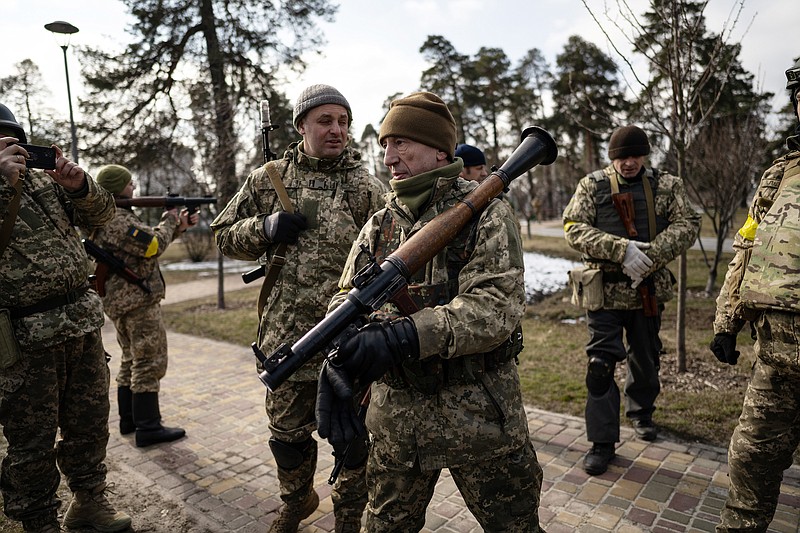In the days since Russia invaded Ukraine, we've tried to avoid World War III. There's no doubt that the economic strategies are punishing. The Russian ruble has lost much of its value. The Russian stock exchange closed for days with one financial analyst toasting its death saying, "Rest in peace dear comrade." Corporations, including Ikea, Exxon, Boeing, Ford, Harley-Davidson, Volkswagen, Disney, Nike, Apple, Dell and Google, are exiting in droves. Visa and Mastercard suspended their Russian operations.
As devastating as these sanctions have been, Russia continues to shell cities, take over nuclear facilities and bomb neighborhoods. And while we'd hoped for a cease fire, plans to bomb the Ukrainian military-industrial complex to smithereens were just announced.
Ukrainians trying to flee understand the true nature of Russia's intentions. How could they not? One moment there's hope for a cease fire where they can leave safely. The next, Russia reneged on its safe passage agreement and, as one Ukrainian put it, began shooting everyone on sight. Reports of attacks on Ukrainian health care facilities, schools and apartment buildings are met with Russian insistence that civilians are not being targeted. Any protests or reporting that claim otherwise are illegal. Threatening reporters with massive jail time has enabled Russia to replace news with propaganda. The exit of news agencies including CNN, BBC, ABC, CBS and Bloomberg was inevitable.
Putin defends his reputation by claiming the "invasion" is fake news. Rather, he has argued that Russia's attacks are defensive in nature and that he aims to "deNazify" Ukraine. Ukraine's President Zelensky is a sole surviving member of a Jewish family wiped out by Nazi troops. Bombing a Kyiv Holocaust memorial where 34,000 Jews were massacred prompted Germany to cite its own experience with Nazism, saying this isn't it.
Instead of being seen as neo-Nazis, Zelensky and the Ukrainian resistance have become world heroes. An unhappy Russia has responded by targeting populated areas. According to Britain's Ministry of Defense, "This is likely to represent an effort to break Ukrainian morale. Russia has previously used similar tactics in Chechnya in 1999 and Syria in 2016, employing both air and ground-based munitions."
Despite Ukrainian pleas for more action, countries maintain a no troops - no-fly zones policy. While this approach is ostensibly to avoid a war with Russia that could turn nuclear, neighboring countries in Eastern Europe understand that war has already begun. Millions of Ukranian refugees have fled to Poland, Hungary, Romania and Slovakia. These countries are worried about what Russia's expansion plan means for them.
We must act, not just respond, and should reassess our role in a Pan-Slavist world that rejects legitimized countries such as Ukraine and Moldova after the collapse of the Soviet Union. What does our support mean? More military supplies? Increased sanctions on Russian oil and grain? Our strategies should better counteract blood-thirsty dictators.
November elections are almost here and we need to demand that campaigns include plans for the future. This is a once-in-a-lifetime war. Are candidates pro-Putin or pro-Zelensky? And if elected, what are their plans relative to sanctions, refugees and military budgets? What about the energy sector - both for fossil fuels in the short term and alternatives in the long term? Time to speak up if you're running for office. Time to vote for all of us.
Contact Deborah Levine, an author, trainer/coach and editor of the American Diversity Report, at deborah@diversityreport.com.
